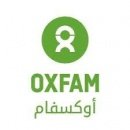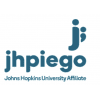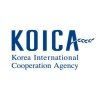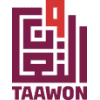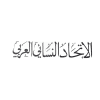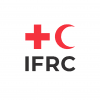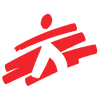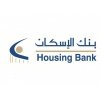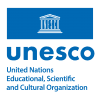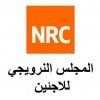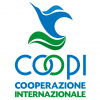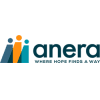Data collection and analysis for Ex-post Economic Justice Ap...
Terms of Reference (ToR)
Data collection and analysis for Ex-post Economic Justice Approaches Impact Evaluation
BACKGROUND
Oxfam is an international confederation of 21 NGOs working with partners in over 90 countries to end the injustices that cause poverty. We are working to help people build better lives for themselves, and for others. Oxfam has been working in oPt since 1982 and supports humanitarian, development, campaigning and advocacy programs both in the West Bank including East Jerusalem and Gaza targeting the most vulnerable communities.
Over the past 10 years, and under Oxfam Great Britain’s (OGB) Global Performance Framework (GPF), sufficiently mature projects across the confederation have been randomly selected and their effectiveness rigorously assessed. In the current fiscal year, oPt Economic Justice program has been selected to go through this process.
However, not all the Economic Justice Program components will be evaluated. The focus of the impact evaluation will be on “Youth and Women Economic Empowerment” Interventions. These interventions are aiming to support Palestinian youth and women in improving and sustaining their access to and control over productive resources, so they can generate sustained employment and living incomes, manage risks, and participate actively in effective decision-making processes. The impact evaluation is to assess the extent to which these components achieved their goals through assessing the strategies and approaches deployed under different projects that were implemented in the last few years.
As Oxfam, we consider impact evaluations as tools for social justice, which requires us to challenge the power dynamics and colonial heritage in evaluation practices. The results of this impact evaluation will be presented in OGB Annual Report 2023.
Focus & Objectives of the evaluation
The focus of the Impact Evaluation will be on “Youth and Women Economic Empowerment” Interventions under the economic justice program in Oxfam opt
Youth Employability through Go Professional Approach:
This approach focuses on youth access to employment and self-employment, income and enterprise establishments through skilled professional capacity building (technical and personal), start-ups and entrepreneurship where innovative ideas are encouraged and model of incubation and acceleration is in place to help small and medium businesses growth (production, and access to markets) through grants, coaching programs and business linkages.
Women’s Economic Empowerment (WEE) and Leadership:
This theme, in particular, focuses on supporting women-led businesses, refine cooperative and collective action and household level gender dynamics including sexual division of labor and women’s additional care responsibilities. Furthermore, it also looking at women’s workers’ rights, and narratives around women's work, while working with women across various agricultural chains.
As an ex-post evaluation, the impact evaluation has the following objectives:
To assess the extent to which the 2 components achieved their goals through assessing the strategies and approaches deployed under 4 closed and completed projects. In these four projects, the economic empowerment of women and youth was a cross-cutting issue. The four projects are.
Developing Equitable Agricultural Production Project, ended in 2020.
Improving Palestinian small-scale farm communities’ access to and power in Olive, high value fruits and vegetables, and small ruminant value chains. AMENCA 3 Project ended in 2021.
Integrated Market Development Project, ended in 2021.
Area “C” Land Development Project, ended in 2022
To highlight key learnings, lessons, good practices, and provide recommendations for future similar programming. As well, accountability to the people we work with, while also meeting an organizational accountability mandate.
Methodology, Consultant Responsibilities & Deliverables:
The intended evaluation is an ex-post evaluation design. Oxfam GB Impact Evaluation team will bring an impact analysis perspective and provide feedback and inputs on the final report draft.
On the other hand, the consultant is responsible to collect and analyze the needed information to answer the evaluation question. To this end, the consultant is expected to employ mixed methods for data collection (both qualitative and quantitative methods). The data collected on the ground should also show segregation of beneficiaries by gender and age, and it has to be carried out where the 4 projects were implemented. Accordingly, it’s expected by the consultant to use a sound sampling strategy to obtain a representative sample. The data collection methods should include:
Focus Group Discussions with targeted beneficiaries.
Key Informant Interviews with main stakeholders.
Semi-structured questionnaires for a very limited number of beneficiaries.
Per each data-collection methodology, the consultant must develop specific questionnaire/guidelines that will be made available as annexes in the final report. Oxfam expects the consultant to engage with Oxfam staff, partners, stakeholders, small-scale producers (SSP) women and men, and business owners to address the evaluation questions stipulated below.
The evaluation questions are:
Under the women economic empowerment (WEE) approach:
To what extent OPT women economic empowerment and leadership interventions are advancing the work on systematic barriers (at the personal informal, personal formal, systematic informal, and systematic formal levels), particularly from rights perspective?
What are the existing gaps? What needs to be scaled up?
To what extent the WEE approach improved women access to resources, information, finance opportunities, income sources, and employability?
To what extent Oxfam opt WEE approach improved targeted women self-confidence and self-efficacy?
To what extent the targeted women are able to defend their economic rights and are able to interact with the community in the labor market?
Under the youth economic empowerment approach:
To what extent the modality of the “Go Professional” Approach is contributing to sustainable youth empowerment while accommodating the volatile and unstable nature of the Palestinian context and the many actors working on youth employment?
What have been the positive changes at the level of beneficiaries in terms of skills developed, skills adaption, employability, and their ability to apply the new skills in their work.
To what extent has the approach improved youth access to resources, information, finance opportunities, and income sources.
To what extent are youth engaged in the project were able to upgrade their overall business?
To what extent are new businesses able to increase their market share?
What is the added value of private sector engagement in the youth start-up?
What needs to be improved in the approach and what needs to be scaled up?
What can we say about interventions' impact on the resilience of vulnerable women and youth? And how?
INDICATIVE PROCESS AND STEPS
The consultant is expected to perform the following tasks in order to execute the assignment:
Preparatory Phase: Desk review of the projects’ key documents
Carry out preliminary interviews with the relevant staff from Oxfam to ensure common understanding of the ToR and the expected results of the assignment.
Develop a workplan and inception report that includes strategies to collect and analyze quantitative and qualitative data. The inception report also, should include the protocols for the enumerators & supervisors, and data entry & analysis plan. As well, the report should include the developed data collection tools and methods.
Field phase: Upon approval of the inception report and the data collection tools, the consultant shall commence the fieldwork.
Reporting Phase: the consultant should analyze the collected data and produce a final report that presents all data and highlights significant, important or interesting findings that could inform/ help Oxfam GB impact evaluation team. The descriptive data presented in the report should be disaggregated by gender, age and location.
The consultant shall render a first draft report to Oxfam for comments. followed by a PPT presentation of findings on a prior agreed date.
Oxfam will feedback on draft report and the consultant then have to finalize the report based on this within less than a week of receiving comments
INDICATIVE TIMETABLE
The period for the assignment is 50 calendar days starting from the date of signing the contract until the submission of final report.
Publication of Term of Reference
January 15, 2023
Deadline for submission of the proposal:
January 28, 2023
Notification of award:
January 31, 2023
Contract signature
February 1, 2023
Submit quantitative raw data, transcript of qualitative data and recording
March 6, 2023
Render a first draft report to Oxfam for comments
March 12, 2023
Conclusion of assignment and final delivery
March 22, 2023
Deliverables
The consultant is liable for the following deliverables:
An inception report, including details such as methodology, the evaluation matrix, work plan, tools, and questionnaires, FGDs guidelines and KIIs checklist and a field survey plan. (These need to be agreed with Oxfam prior to the start of field survey).
Survey data on MS Excel including codebook
Transcript of qualitative data and recording
Final evaluation report, learning section, and recommendation section.
All deliverables will be submitted in English with the exception of the data collection tools that should be provided in Arabic and English. Recording of qualitative data collection activities as part of the deliverables if the participants agree to the use of recording. The period for the assignment is 50 calendar days starting from the date of signing the contract until the submission of final report and the raw data.
Responsibilities of the consultant
The consultant is required to:
Take the responsibility for the data collection and data analysis processes and appoint a person as the contact point with Oxfam for all the liaison and coordination.
Compose the data collection team that is capable to deliver the output of required quality in time and mention the team composition in his / her proposal.
With the support from Oxfam, make necessary appointments for the key informant interviews, mobilize participants, including direct beneficiaries for focus group discussions and visit the partners for data collection. The project staff in the country would support and participate in FGDs except for those intended for the project beneficiaries. Oxfam will provide necessary authorizations through letters to use the organization names by the consultant. All communication and coordination in the country for collecting data should be the consultant’s responsibility.
Manage all the logistics of field survey in coordination with Oxfam.
Train an adequate number of enumerators that will be recruited in cooperation with the Oxfam country team for the field survey and supervise their work (both progress and the quality).
Ensure that all the Consultant’s personnel are following the Code of Conduct and the policies of Oxfam and a declaration to this effect is signed by them.
Submit the deliverables (mentioned under item 5 above) on time, and,
Maintain the confidentiality of all information gathered. (Prior to undertaking, the consultant will have to declare that the information gathered would not be used for a purpose other than for those stipulated in the ToR).
Responsibilities of Oxfam
As the organization commissioning the Evaluation, Oxfam will:
Provide all the relevant documentation and project reports for the Evaluation’s purpose
Hold the responsibility for the provision of feedback / comments for inception report, tools, questionnaires, draft report, and presentations as per the agreed time frame. Consultant can suggest the time frame.
Provide the templates for reporting and financial settlements.
Keep the relevant stakeholders (who are to be interviewed by the consultant) informed about the evaluation.
Make necessary arrangements for meetings and presentation whenever required.
Review the timeline of evaluation and make necessary amendments in consultation with the consultant, and
Provide payments to the consultant as per the agreed schedule upon completion of minimum requirements.
DESIRED QUALIFICATIONS, SPECIALIZED KNOWLEDGE and expertise
Upon the conclusion of an open and competitive bidding process, Oxfam will select and commission a technically qualified independent Consultancy Firms with an efficient and effective team composition covering targeted localities in both West Bank & Gaza Strip. The Core Team should include expertise in Market System Development approaches, quantitative and qualitative monitoring and evaluation, statistics, agricultural development, and gender. The team should also include experienced enumerators and data entry personnel.
The ideal consultant will have at least 7-10 years of relevant experience. The consultant should have the following skills and competencies:
Proven record in the development and implementation of quantitative and qualitative assessments in the international development sector for economic justice programming, in particular in agricultural fresh and processed sector.
Good knowledge and extensive practice applying participatory approaches, qualitative and quantitative methods to monitoring and evaluation.
Good experience of market system development approaches, value chain and M4P approaches and in working with relevant stakeholders in both West Bank and Gaza Strip.
Experience of integrating gender dynamics within participatory data collection and analysis.
Experience in conducting field research with Palestinian communities.
Relevant geographical experience in the West Bank and Gaza Strip, ideally including previous work in the targeted governorates.
Ability to communicate fluently in English and Arabic and write reports in English
S/he is expected to propose efficient and effective team composition in both West Bank and the Gaza Strip taking into consideration the social, cultural, environmental, and political/security issues.
Ability to work with a diverse team and under pressure to produce agreed deliverables in a timely manner
Acknowledged similar consultancies with recognized organizations.
Evaluation of proposals and selection process
Potential and interested firms / individuals are required to submit a comprehensive proposal describing / articulating the work requirements outlined in this ToR. Professional and language proficiency of the proposed personnel, including the field enumerators, are important to indicate in the proposal. All proposals will be evaluated based on internally agreed criteria as follows:
(Weight for each criterion given in percentages)
Experience in the development and implementation of quantitative and qualitative assessments in the international development sector for economic justice programming, in particular in the agricultural sector. (10%)
Geographical Experience (Gaza and West Bank) (10%).
Proposed actual number of days, timeframe, and team size (10%).
Proposed team/personnel which includes composition of the team and their educational qualification and experiences as articulated in the section above. With equal competences, gender-balanced teams will be favorable (30%).
Quality of presentation of proposal (10%).
Financial proposal (30%)
70% of weight will be given to technical proposal and 30% of weight will be given to financial proposal. The applicant should score minimum of 40% in the technical evaluation to be eligible for financial evaluation.
Terms and conditions
Payment will be on submission of Tax-exempt Invoice on delivery against milestones. All incidentals, equipment and materials, accommodation and travel required for the assignment are the responsibility of the consultant and need to be included in the financial proposal. The consultant should follow the Oxfam’s Branding policies and ensure Oxfam and donor logos are presented as per the guidelines. The consultant and his / her team in the assignment must abide by Oxfam child protection policy, code of conduct, sexual harassment policy and Oxfam’s other relevant policies. All requirements in respect of insurance including professional indemnity, worker’s compensation, public liability, superannuation and taxation, where applicable will remain, at all times, the responsibility of the consultant.
The financial offer should be in USD excluding VAT tax. The tendered should be able to issue an official vat exemption invoice and valid deduction at source certificate. The financial offer prices should be valid for 120 days.
SUBMISSION PROCESS
Interested consultants should submit letter of interest, technical proposal, and financial offer no later than January 28, 2023, to the attention of OPT–Jerusalem Procurement [email protected]
The proposal should include the following:
Objectives -understanding of the scope of the assignment.
Technical offer including a preliminary causal approach, design, methodology, and timeline.
CV of the consultant(s) including a list of similar works with a cover letter.
Detailed budget on a separate sheet.
All docs are requested in English.




